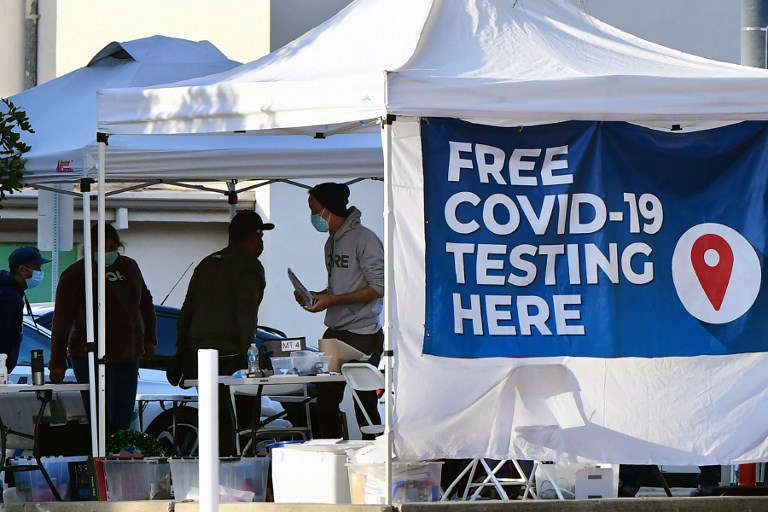The rapidly-spreading but seemingly less potent Omicron variant of the coronavirus could bring an end to the pandemic in Europe, according to Hans Kluge, Director of the European branch of the World Health Organisation (WHO).
On Sunday, he said in an interview with Agence France-Presse that the Omicron strain brought the continent to a new phase of the pandemic, adding that it is plausible that the region is moving towards "a kind of pandemic endgame."
"Once the Omicron wave calms down, there will be a global immunity for some weeks and months, either thanks to the vaccine or because people are immune through infection," Kluge said. He added that, as temperatures start to rise in Europe, there will be fewer infections due to the seasonal effect.
"We anticipate that there will be a period of quiet before Covid-19 may come back towards the end of the year," he said, adding that this does not necessarily the pandemic will come back.
However, Kluge urged caution and argued that the virus has been unpredictable before, and that it still remains possible that other variants may emerge.
Related News
- 'End not yet in sight': infections will decrease from end of February, says Van Gucht
- England moves towards freedom as EU clamps down on unvaccinated
This was mirrored by the WHO's Director-General Tedros Adhanom Ghebreyesus, who warned earlier this month that the time had not yet come for people to lower their guard in light of the possibility that the risk of hospitalisation and death is slightly lower among vaccinated people who become infected with the Omicron variant.
"While Omicron causes less severe Covid-19 disease than Delta, it remains a dangerous virus, particularly for those who are unvaccinated. Almost 50,000 deaths a week is too many. Learning to live with this virus does not mean we should accept this number of deaths," he stated on Twitter.
Situation in Europe
The Omicron variant, which is now the dominant strain in the European Union and the European Economic Area (EEA), and has been identified in all countries, according to the latest data from the European Centre for Disease Prevention and Control (ECDC).
This data also showed that the variant accounts for almost 100% of cases in Belgium, where the number of infections is rapidly increasing, but the number of hospitalised Covid-19 patients in intensive care continues to decline.
Kluge stressed that the emphasis in European countries should now be on "minimising disruption of hospitals, schools and the economy, and putting huge efforts on protecting the vulnerable", rather than measures to stop transmission, and urged people to exercise personal responsibility.
He added that the main focus should also be on stabilising the health care systems in all countries.
"Stabilising means that the health system is no longer overwhelmed due to Covid-19 and can continue with the essential health services, which have unfortunately been really disrupted for cancer, cardiovascular disease, and routine immunisation."
In a written statement published today (24 January), the Director of WHO/Europe summarized that, “Although Omicron offers plausible hope for stabilization and normalization, our work is not done,
“Huge disparities in access to vaccines remain. If 2021 was the year of vaccine production, 2022 must be the year of vaccine equity in the European region and beyond. Too many people who need the vaccine remain unvaccinated. This is helping to drive transmission, prolonging the pandemic and increasing the likelihood of new variants.”
His message in the statement was mixed. Although the pandemic, like all other pandemics before it, will end, it is far too early to relax and it is too early to drop our guard.
“With the millions of infections occurring in the world in recent and coming weeks, coupled with waning immunity and winter seasonality, it is almost a given that new COVID-19 variants will emerge and return.
“But with strong surveillance and monitoring of new variants, high vaccination uptake and 3rd doses, ventilation, affordable equitable access to antivirals, targeted testing, and shielding high-risk groups with high quality masks and physical distancing if and when a new variant appears, I believe that a new wave could no longer require the return to pandemic-era population-wide lockdowns or similar measures.”

